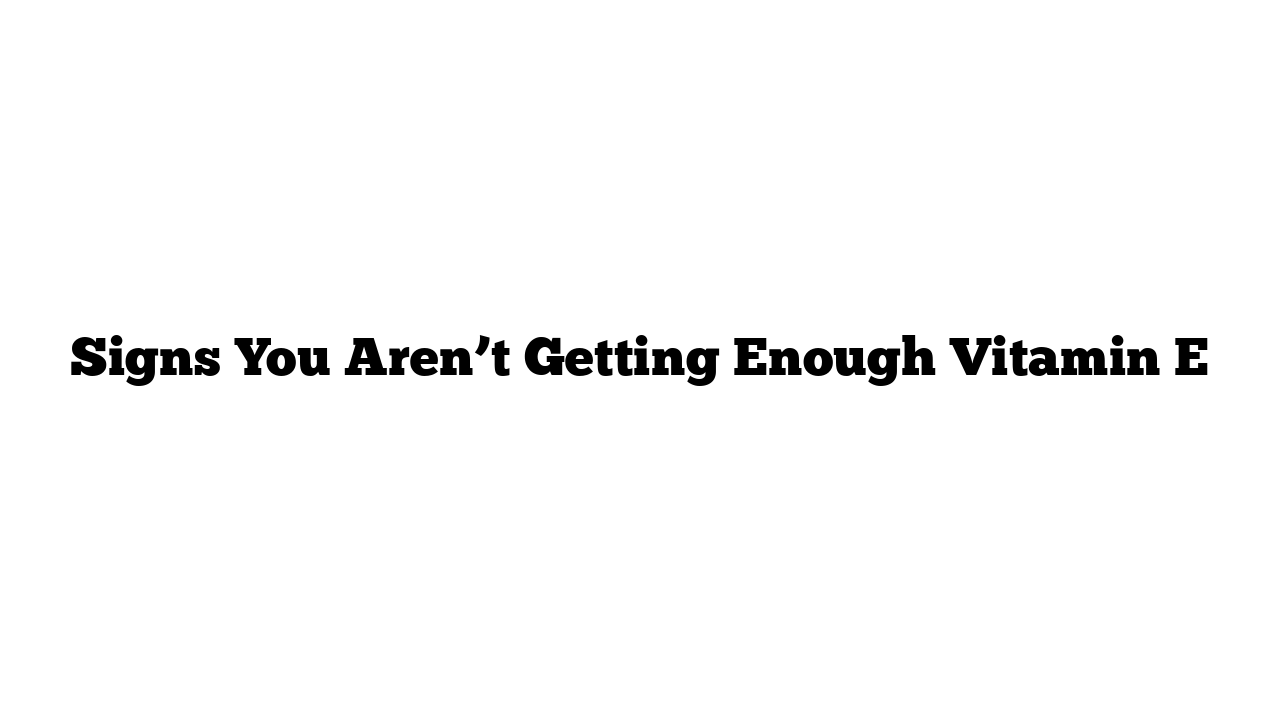Feeling tired often? Noticing extra hair shedding when you comb your hair? These could be signs you’re not getting enough vitamin E. Despite its importance, we sometimes overlook this essential fat-soluble vitamin. Here’s a closer look at the signs of Vitamin E deficiency and why this nutrient is so crucial.
1. Skin Problems
Your skin often gives the first clues about your overall health, especially when it lacks vital nutrients. Vitamin E is a powerful antioxidant that helps nourish your skin. It plays a role in slowing down the aging process, keeping your skin looking young and healthy. Adequate Vitamin E can help reduce the risk of chronic skin issues like acne, psoriasis, and atopic dermatitis.
2. Muscle Weakness
Vitamin E is essential for keeping your central nervous system healthy. Without it, you may experience muscle weakness, often felt as pain or discomfort during muscle contraction or relaxation. This occurs because low vitamin E levels increase oxidative stress in your body, affecting muscle function and making everyday tasks more challenging.
3. Hair Loss
Hair health is also closely tied to vitamin E. This nutrient helps protect your hair by reducing oxidative damage, which can weaken hair follicles. Vitamin E also aids in regenerating damaged hair, giving it a shinier, healthier appearance and even slowing down the greying process. If you’re dealing with excessive hair fall, it may be time to review your diet for adequate vitamin E sources.
4. Frequent Illness and Slow Healing
The immune system relies on vitamin E to combat infections effectively. Low levels of vitamin E may result in more frequent illnesses and slower wound healing. This vitamin supports immune cell function, keeps blood vessels open, and reduces blood clots, making it essential for immune health, especially if you’re prone to frequent sickness.
5. Vision Problems
As we age, maintaining eye health becomes more challenging. Vitamin E is known to reduce the risk of Age-Related Macular Degeneration (AMD) and cataracts, both of which can impair vision. Including vitamin E-rich foods in your diet or taking supplements may help protect your eyesight over time.
6. Numbness & Tingling
When your diet lacks vitamin E, your nervous system can become vulnerable to oxidative stress. This may damage peripheral nerve fibers, leading to numbness and tingling in your limbs—a sign of peripheral neuropathy. If you experience these sensations often, it’s worth checking your vitamin E intake.
7. Ataxia (Loss of Movement Control)
Ataxia refers to a condition where you lose control over voluntary body movements, typically due to a damaged TTPA gene, which affects vitamin E distribution in the body. Low vitamin E levels increase stress on neurons, impairing body coordination. In extreme cases, this can lead to significant movement impairments.
Build Trust with Your Audience Maintaining a balanced diet with adequate vitamin E can help you stay healthy, with benefits ranging from smooth skin to strong muscles. Want to learn more about Vitamin E and other essential nutrients? Visit our medicaltimes.io website for more articles.
